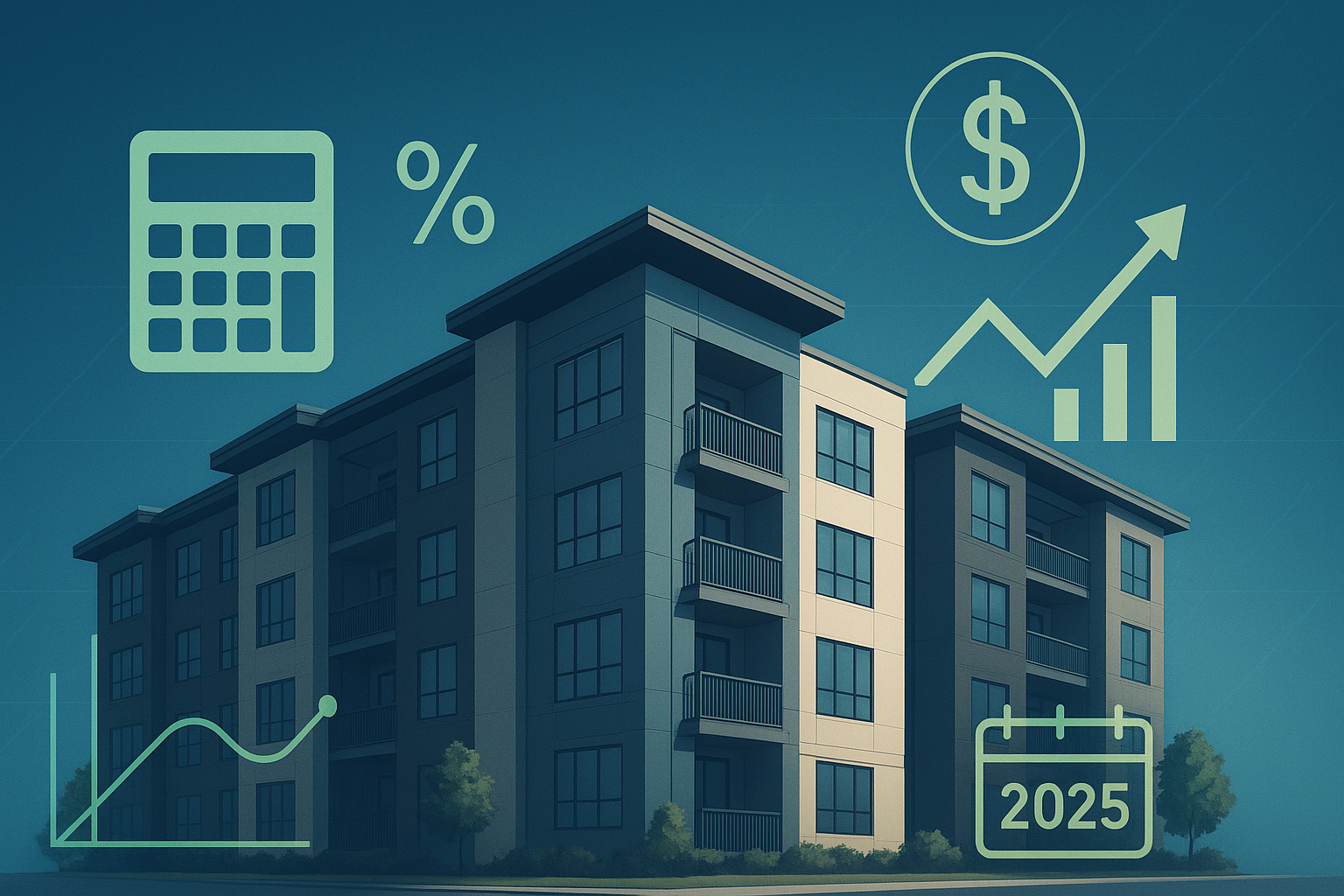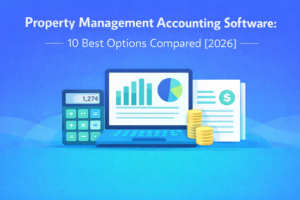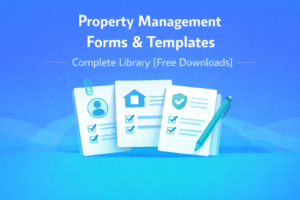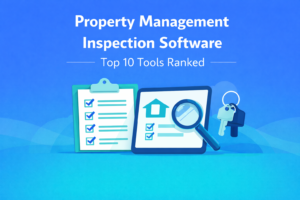
Ever wondered why two multifamily property owners with similar portfolios end up paying drastically different tax bills? The answer is not the difference in their luck, but in strategic tax planning. As property management continues to evolve in 2025, property managers need to stay ahead of new IRS guidelines, bonus depreciation changes, and entity structuring strategies to make a difference between break-even and maximized returns.
Whether you oversee a thriving multifamily portfolio or are new to the real estate game, this guide talks about five of the best tax strategies for multifamily property management.
We’ll discuss:
- Time-tested strategies to shrink taxable income and boost cash flow
- What’s new in the 2025 tax regulations that might impact multifamily investors
- The most common mistakes and how to set up your business for maximum savings
Let’s get started.
Best Tax Strategies for Multifamily Property Management
Below are the best strategies you can follow in 2025:
1. Optimize Depreciation Deductions
Depreciation is perhaps the strongest tax weapon multifamily investors possess. It allows you to deduct part of the value of your property annually without ever spending a dime.
What Is Depreciation and Why Does It Matter?
In simple words, the IRS lets you “expense” part of the building’s value over 27.5 years for residential properties. This lowers your taxable income even if your real profits don’t change.
Example:
If your multifamily building is worth $2.75 million, you can generally deduct $100,000 annually under straight-line depreciation. That’s a big victory for your bottom line.
Go Beyond Basics: Cost Segregation Studies
In 2025, more property managers are turning to cost segregation studies, a technique that breaks down your property into faster-depreciating components like lighting, flooring, and landscaping. This can accelerate depreciation and generate larger tax deductions in the first few years.
If you’re exploring tools that make it easier to track and categorize property assets, Propertese’s software for multifamily property management can help simplify your bookkeeping and expense tracking.
2. Leverage 1031 Exchanges to Defer Capital Gains
Perhaps the best strategy for multifamily investors is the 1031 exchange, which takes its name from Section 1031 of the IRS code.
How It Works
If you’re selling one investment property and putting the proceeds into another “similar” property, you can delay capital gains taxes otherwise due on the sale. That keeps your money working for you rather than for the IRS.
Example:
Sell an asset for $2 million, realize a $400,000 profit, and reinvest it in another eligible multifamily property. You never pay taxes now—only when you finally sell out.
Why 2025 Is a Crucial Year
With possible revisions to capital gains tax levels and depreciation timelines being considered in Congress, getting your 1031 exchange timing right is more critical than ever.
3. Take Advantage of Bonus Depreciation Before It Phases Out
Bonus depreciation lets investors deduct a substantial portion of eligible assets in the first year instead of amortizing deductions over decades.
What’s Changing in 2025
The Tax Cuts and Jobs Act (TCJA) permitted 100% bonus depreciation until 2022, which began decreasing to 60% in 2024 and will be 40% by 2025 unless new laws extend it.
What You Can Do Now
- Perform a cost segregation study to determine qualifying assets (such as HVAC systems or appliances).
- Prioritize property improvements in early 2025 to secure higher deductions.
If you’d like a complete breakdown of how this works, check out Accelerated Rewards: Understanding Bonus Depreciation on Rental Property. It dives deeper into this topic with real-world examples.
4. Deduct Operating and Management Expenses the Right Way
Any dollar you spend managing your multi-family property can translate into substantial deductions if they are correctly categorized.
Common Deductible Expenses Include:
- Property management software and subscriptions
- Maintenance, utilities, and cleaning services
- Professional and legal fees
- Marketing and advertising costs
Pro Tip for 2025
Artificial intelligence-powered platforms now enable automatic tracking of deductible expenses. If your business is still using spreadsheets, you might be leaving money on the table.
Our blog on Enhancing Property Management Efficiency with Propertese covers how automation tools simplify accounting and streamline cost tracking.
Use Case:
If you pay $12,000/year in repairs, $6,000 in marketing, and $4,000 in management software, you can subtract $22,000 right off of your taxable income. That’s a direct, legal reduction in your tax bill.
5. Maximize Passive Losses and Offset Active Income
Multifamily investors often overlook the power of passive activity losses (PALs). These loss situations happen when your rental deductions are more than your rental income, and they can offset other income under certain conditions.
Real Estate Professional Status (REPS)
If you or your spouse is a real estate professional, you may deduct an unlimited amount of passive losses against active income, such as W-2 wages or business earnings.
To qualify, you must usually:
- Spend 750+ hours per year on real estate activities, and
- Work more than half of your working hours on those activities.
Example:
If you have $60,000 of passive losses and are eligible for REPS, you might deduct from your taxable income the same sum, potentially saving more than $15,000 in taxes.
For related reading on optimizing your property’s performance, explore How Multifamily Performance Software Is Revolutionizing Property Management.
How to Choose the Right Business Entity for Multifamily Tax Efficiency
Selecting the appropriate legal structure for your property management company can make a huge impact on how much you pay in taxes.
Common Entity Types for Multifamily Owners
- LLC (Limited Liability Company): Provides flexibility and pass-through taxation.
- LP (Limited Partnership): Suitable for various investors grouping capital together.
- S Corporation: Can lower self-employment taxes for active managers.
- REIT (Real Estate Investment Trust): Facilitates public investment but demands strict adherence.
Use Case
Let’s assume you have four multifamily properties under one LLC. If you establish individual LLCs for each property, you can:
- Segregate liability exposures, and
- Maximize tax planning by prudently allocating depreciation and income.
For more on structuring your business and understanding software needs, visit Blueprint for Success: Understanding the Property Management Business Model.
Common Tax Mistakes Multifamily Investors Should Avoid in 2025
Even seasoned property owners get into costly, avoidable pitfalls that cost thousands a year.
Mistake #1: Forgot to Recalculate Depreciation After Renovations
Each time you improve your property, like the addition of new flooring, lighting, or HVAC, you must recalculate your depreciation schedule.
Mistake #2: Misclassified Repairs vs. Improvements
Repairs (such as patching leaks) are deductible immediately. Improvements (such as constructing an additional room) must be capitalized and depreciated over time.
Mistake #3: Overlooking State-Level Property Taxes
Some states, such as California and New York, impose additional property tax surcharges that may be avoided with improved structuring and timing of purchases.
For expert advice on improving operational efficiency to free up cash flow, read The Bottom Line: Effective Tactics to Elevate Property Management Revenue.
Quick Checklist to Prepare for 2025 Tax Season
- Complete a cost segregation study before year-end
- Examine all operating expense categories
- Evaluate entity restructuring for tax efficiency
- Max out depreciation and 1031 potential
- Talk to a real estate CPA
Final Thoughts
Multifamily investing is about making a profit by being wise and tactical in tax management. With changing IRS regulations, phase-outs of bonus depreciation, and the emergence of AI-based accounting software advances, 2025 presents new challenges as well as unprecedented opportunities for property holders.
If you’re willing to manage your tax planning and increase your returns, Propertese can assist you in taking your multifamily property management to the next level. Propertese automates financial reporting, simplifies lease and tenant management, and delivers real-time insight into portfolio performance, all while maintaining your operations efficient, compliant, and tax-ready.
What’s the next step on the path to smarter property management? Book a demo with Propertese today and discover how technology can get the best out of your returns in 2025 and beyond.
Table of Contents
Stay Updated
Subscribe to get the latest news, industry trends, blog posts, and updates...




